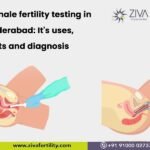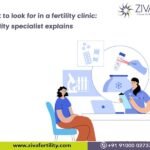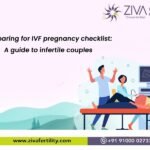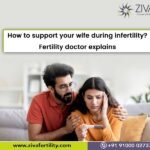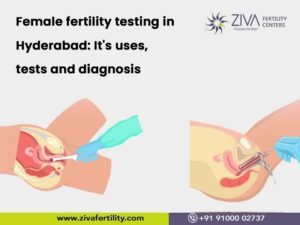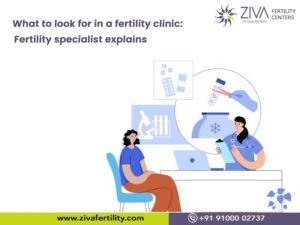Natural conception means the process of birth follows the laws of nature. The sperm enters the vagina, travels through the cervix into the uterus (womb) and to one of the fallopian tubes, where fertilisation of a mature egg occurs. After fertilisation, the resulting embryo attaches to the uterine wall for pregnancy. Many elements work in silent sync for this entire dance to work perfectly. A healthy woman has a 20% chance of success around 30, and this chance falls to 5% when the female’s age is around 40 or more.
The main aspects are having unprotected sex consistently, tracking the ovulation cycle, and maintaining a healthy lifestyle. The highest chances of natural conception are when the couple is under 35.
Natural conception explained
Natural conception starts with a proper balance of reproductive hormones in both partners to produce healthy eggs in women and sperm in men. During the menstrual cycle, healthy ovaries release one mature egg in a process known as ovulation. This mature egg travels into one of the nearby fallopian tubes, which must be fertilised within 12 to 24 hours. After intercourse, the sperm enters the vagina, passing through the cervix and uterus and into one of the fallopian tubes. The egg and sperm meet in the fallopian tube, attach to one another, and result in fertilisation and a single-cell zygote. This zygote moves into the uterus (commonly known as the womb), dividing into more and more cells and forming a ball. The ball of cells is termed a blastocyst, which takes 5-6 days after fertilisation to reach the uterus. Only after the blastocyst implants in the uterus does a pregnancy officially start.
Tips to conceive naturally
Timing of intercourse during the fertility window
The sure-shot thing a couple must do is to have sexual intercourse during the timeframe when a woman is most fertile. The fertility window is counted for women, and it begins five days before ovulation and ends after ovulation. Sperm that has entered the female reproductive system is viable within a woman’s body for up to five days. On the contrary, an egg is viable for fertilisation up to 24 hours after release. For the best conception result, have intercourse every 1-3 days around the time of ovulation. Unprotected sex before ovulation has a higher chance of conception than intercourse after ovulation. Timed intercourse means that the sperm is available by the time a fertilised egg is released.
Ovulation tracking: Ovulation occurs about 14 days before periods, but this may vary, and ovulation is not guaranteed to be on time every month. During ovulation, women experience a surge of the luteinizing hormone, LH, that causes a woman’s body to release an egg.
Over-the-counter ovulation predictor kits: Many branded over-the-counter ovulation predictor kits use a urine sample to detect the level of LH, indicating the fertility window is open. LH starts to surge one day before ovulation, so it’s best to start testing on the 11th day of the cycle. Take the home test simultaneously each day, ideally in the afternoon. First thing in the morning, the test results may cause false positive difficulties. Also, avoid testing when the urine is dilute or explicit, which can give false adverse effects.
Tracking basal body temperature: The LH surge increases the body’s basal temperature and is another way to predict ovulation. This way of knowing requires more work and must be carefully conducted.
Other tests: LH surge also causes dryness of the tongue and changes the saliva, so some kits test saliva. The cervical mucus is thicker and resembles an egg white during ovulation, so observing the cervical secretions is also a method. None of these are as reliable as the LH kits.
Age factors
The chances of getting pregnant naturally are higher in couples aged below 35. As age progresses, there is a decline in the quantity and quality of the eggs. There might be other health complications, too, as one age, especially diabetes, high blood pressure, etc. With age comes a reduction in the chance of the egg developing into a healthy embryo that can become a healthy foetus and reach live birth.
As per statistics, a woman in her 20s has a 20%-25% chance of getting pregnant each month. At this age, her eggs are at peak quality and plentiful. The exact figure goes to 15%-20% for women aged 30-35. There is a rapid decline in fertility after the age of 35. So, women planning to get pregnant in their late 30s could start with ovarian reserve testing.
Once they hit their 40s, the chances are less than 5% each month, and there is only a 1% chance between the ages of 45 and 49. This does not mean it will be impossible to get pregnant.
Though many think that men are unaffected by age, it is only partly true. They can still father a child at a later age, but the sperm would be weaker. Pregnancies resulting from such a sperm will result in miscarriages or premature labour.
Statistics about natural conception
Couples having sex every two to three days can get pregnant within a year of trying.
The American Society for Reproductive Medicine states :
- Only 20% to 37% of couples can get in the first three months.
- If the female partner is under the age of 40, there is an 80% chance a team will get pregnant within a year
- 90% chance of conception in two years.
Lifestyle factors
- Include maintaining a well-balanced diet, maintaining a healthy weight, exercising moderately, and avoiding stress.
- Start taking a daily dose of folic acid.
- Track your ovulation using an LH ovulation predictor kit.
- Also, approach frequent sex as a pleasure and not as a chore to achieve pregnancy, and don’t limit sex to just timing intercourse in hopes of achieving pregnancy.
- Don’t smoke or use any tobacco or marijuana products, which have adverse effects on fertility and the health of a fetus.
- Do not drink alcohol since excess alcohol could lead to decreased fertility.
- Limit daily caffeine consumption to less than 200 milligrams, which equals 1-2 cups of coffee.
- Limit intense, strenuous exercise, as it is connected to decreased ovulation.
- Before using herbal supplements for fertility boosters, discuss with your fertility specialist.
We at ZIVA Fertility Clinics aim to promote natural conception. We will guide all our couples to conceive naturally. Sometimes, with minor adjustments, the team can get naturally pregnant. For more information, please visit our website, https://zivafertility.com/, or call +91-9100002737 or +91-9392834024.


